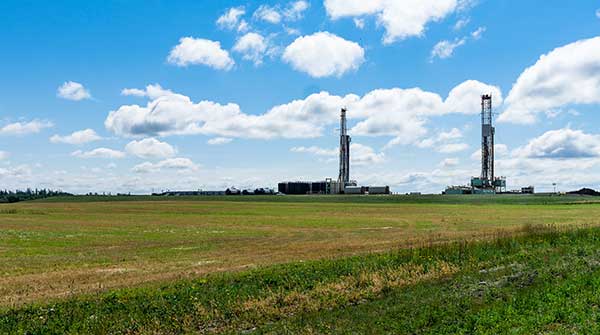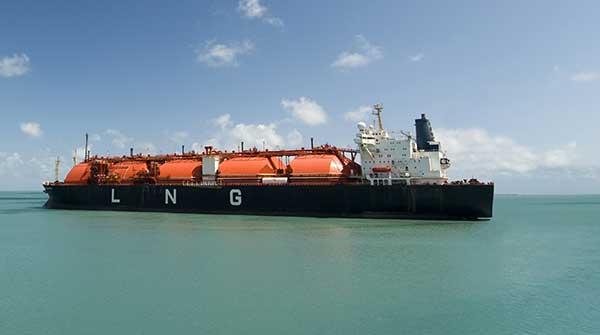Catherine McKenna’s attack against Canada’s energy sector irresponsible and oblivious to the world’s energy challenges

For interview requests, click here
In a recent op-ed, Canada’s former minister of environment and climate change, Catherine McKenna, launched an irresponsible attack on industries across Canada, categorizing their commitments to drive down greenhouse gas emissions and reach defined reduction targets as “greenwashing.” Reducing industry efforts to a single sensationalized term is profoundly unfair and oblivious to the world’s energy challenges.
The world is undergoing a historical shift at the scale of the industrial revolution, redefining global trading relationships and geopolitics. At the centre of this shift is energy. For Canada to thrive, we need to achieve a pragmatic and careful balance that solves the trilemma of protecting the environment, ensuring we have energy security while creating economic benefits for all Canadians. There are real-world consequences to getting this wrong, as we see with the current global energy and inflation crisis.
|
Click image for larger view
|
| Related Stories |
| IEA raises global oil demand forecast again
|
| Canada has the potential to be a natural-gas powerhouse
|
| The “bass-ackward” state of energy transition in Canada
|
But getting it right holds significant opportunity for Canada. We have some of the largest oil and natural gas reserves in the world and a small population, which means we can export much of what we produce, flowing dollars from other countries into Canada. We also produce our energy resources responsibly, with some of the highest environmental and human rights standards on the planet.
In addition, billions of dollars in industry capital are currently invested and designated to be invested in carbon capture and other clean technologies. Dismissing this as “greenwashing” ignores real investment, cooperation between industry and governments, and pragmatic climate solutions.
What is often disregarded by some is that world demand for oil and natural gas will not disappear overnight.
The International Energy Agency’s (IEA) January market update has oil demand at a record 101.7 million barrels per day (b/d). Oil and natural gas currently provide over half the world’s energy needs. The IEA, via their “Stated Policies Scenario,” has oil demand remaining strong post-2040.
Even decarbonization scenarios aligned with limiting global warming to 1.5 degrees Celsius indicate the need for millions of barrels of oil per day in 2040 and beyond.
With inevitable production declines due to a lack of investment in oil and natural gas production and the potential of geopolitical strife (like in Ukraine), the world needs reliable, stable producers – like Canada. And it needs producers serious about addressing climate change – once again, that’s Canada. Of the top 30 oil producers, Canada, the United States, Brazil, Mexico, and Norway are the only democracies currently producing over one million b/d of oil.
Canada’s natural gas and oil producers are suppliers of energy that the world needs, and we could do significantly more to protect global energy insecurity and lower world emissions. While Europe softened the fallout from losing Russian gas by paying a premium to secure limited sources of liquefied natural gas (LNG) from elsewhere, the rest of the world increasingly felt the effects. In 2022 coal use hit an all-time high, with Asian countries, in particular, turning to the reliable fuel source out of necessity to meet their energy needs.
This is an opportunity for Canada. Thanks to a combination of geology, stringent regulation and progressive operators, Canada has some of the lowest GHG intensity natural gas production on the planet. Exporting lower-emission Canadian natural gas to the world supports energy security and helps address climate change. Canadian LNG terminals, those currently being built and others in the planning stages, represent a generational opportunity to grow our economy and displace coal use globally – in turn lowering global emissions. With LNG Canada set to be the lowest-emission LNG facility in the world, Canadians should celebrate this accomplishment.
Canada’s oil and natural gas sector is acutely aware of the need to reduce emissions and recognizes the importance of providing real solutions. Canadian Association of Petroleum Producers (CAPP) member companies are not engaging in “greenwashing.” They are investing in, developing, and deploying innovative technologies – such as the Quest carbon capture facility, which has, to date, sequestered over five million tonnes of C02, or the electrification of gas facilities in British Columbia which has led to emissions reductions equal to removing over 180,000 cars from the road. Canada’s oil sands producers have undertaken the technologically challenging task of pursuing a path to net zero for Canada’s oil sands, with projects already underway. They aren’t just talking about action – they’re taking action.
To dismiss this does Canadians a disservice and fails to tell the story of thousands of Canadians in industry working hard to make meaningful progress on emissions.
Canada’s oil and natural gas producers recognize that producing lower-emission resources will provide us with a global competitive advantage. Canada is a leader in developing emissions reduction technologies such as carbon capture and methane detection. To remain a leader, we need to attract investment to ensure decarbonization projects and technologies are built and developed here.
Dismissing generational opportunities and billions of dollars in spending from private industry as “greenwashing” can have a devastating effect and will only discourage investment into pragmatic climate solutions that create real opportunities for Canadians.
Lisa Baiton is the President & CEO of the Canadian Association of Petroleum Producers.
For interview requests, click here.
The opinions expressed by our columnists and contributors are theirs alone and do not inherently or expressly reflect the views of our publication.
© Troy Media
Troy Media is an editorial content provider to media outlets and its own hosted community news outlets across Canada.



